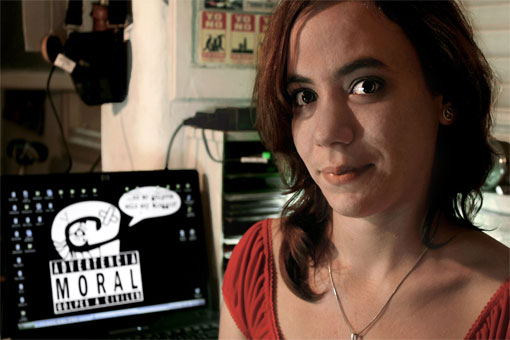For the past 50 years, leadership in Cuba has been restricted to one person. As a consequence, the definition of a leader has been distorted and the dynamic of leadership skewed. The media refers to Fidel Castro as “Maximum Leader,” a phrase that connotes something perpetual, powerful and omnipresent. The term, and its widespread use, discourage the very notion that young people can some day take over leadership in their own right.
This sense of ownership of power and destiny has prevented the development of Cuban political consciousness. In free societies, people can use the power of ideas to mobilize the population. In Cuba, the all-encompassing ideology of Fidel Castro’s revolution and government restrictions on political freedom and freedom of speech have forced leaders and groups to find new ways to share their stories and reach people.
This began to change with the collapse of the Soviet Union. The value system of many Cubans, particularly those of the generation born after 1975, was dramatically altered by the collapse of the Cuban economy. The evaporation of Soviet support for the system meant the resurgence of family businesses, such as the rental of rooms, illegal contraband of basic staples, the flow of money from abroad, and an astronomical increase in black market activity. All the while, the government pretended not to notice. With the revival of the “self-employed” and entrepreneurial family businesses, one of the pillars of communist doctrine crumbled—that the state should own the means of production.
The effect on young Cubans has been extraordinary. Today, Cuban youth avoid the use of words like “leader” or “revolutionaries.” Those words have been distorted by the burden placed on them by Cuban political rhetoric. Under the old definition, a revolutionary is one who supports the Cuban Revolution and its historical leaders. Thus, young people prefer less historically loaded terms, such as “vanguard,” “independent citizen,” “independent journalist,” and “independent artist.” The concept of independence, in fact, emphasizes their autonomy from the government. There are some young people who call themselves revolutionaries, but they do it in contrast to the Cuban revolution, which they claim is no longer revolutionary but instead simply represents the status quo.
Since the collapse of the Soviet Union, activities fostered by the young have blossomed. There are independent art galleries, like Espacio Aglutinador, founded in 1994 by Sandra Ceballos and Ezequiel Suárez. Performing groups, such as Omni-Zona Franca (formed in 1997), present a critical vision of Cuban society and place emphasis on individual freedom. There are independent publications such as the magazine Vitral, founded by Dagoberto Valdés under the tutelage of the Centro de Formación Cívica Religiosa. In 2007, Valdés was removed from the editorial board, and a year later he inaugurated Convivencia in digital format. Another prominent independent publication is the literary magazine Diáspora(s) (1997–2002), founded by Rolando Sánchez Mejías, Carlos Alberto Aguilera and Pedro Marqués de Armas…





